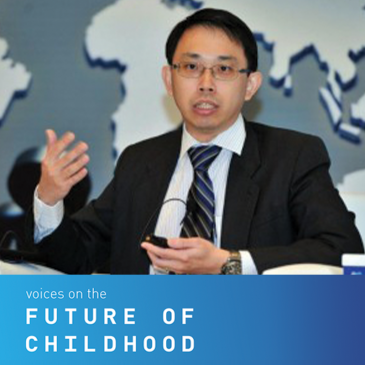For Part 2 of the Voices on the Future of Childhood series, we asked experts to take a stab at predicting the future by offering their thoughts on “What will change in the coming months and/or years as a result of the coronavirus pandemic.”

A renewed push to make learners independent
Matthew Kam, PhD, is the lead researcher in Google’s Chromebooks team for families, education, and business strategy. The opinions expressed here are his own.
Students are increasingly turning to online resources and services to fulfill goals ranging from academics and careers to life skills and interests. In the immediate term, school closures due to COVID-19 are accelerating this shift toward online learning. Longer term, the economic slowdown and its impact on public funding require that public schools devise creative ways to achieve cost savings as part of the “new normal.” This will likely include adapting existing curricula to incorporate more online learning experiences and resources that are well designed. Doing so will free up teachers to support more students who are low-achieving or have special needs.
Research finds that students require skills around “self-regulation” to succeed at online learning. This comprises the attitude that ability can be improved over time, being able to stay focused, the ability to monitor new information for inconsistencies, and knowing when and how to seek help from resources, including online ones. It is precisely this glaring disparity between students in terms of their readiness to learn that determines their lifelong success in an increasingly complex world. Developing the tools, resources, and supports to equip students with self-regulation skills will empower them to be independent learners over their lifetime. And it takes a concerted partnership between educators, parents, policymakers, researchers, technologists, and other supporters to realize this vision.
Teaching students “to fish for themselves” is an ambitious undertaking. But it is the surest path to closing the achievement gap after COVID-19 is long over.
See more posts in this series:
Voices on the Future of Childhood
Alan Gershenfeld | Caroline Hu Flexer | David Kleeman | Jeremy Bailenson
Matthew Kam | Michael Rich | Mimi Ito | Warren Buckleitner

